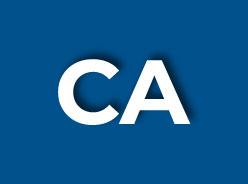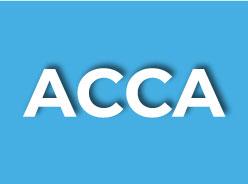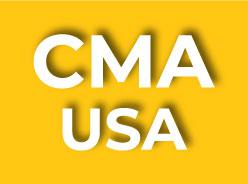Accounting is one of the most in-demand professions across the globe right now. And with good reason as it provides endless opportunities for both freshers and well as seasoned professionals in the field. The accounting profession is seeing a rapid change as the world evolves. So if you are someone who is looking to climb to new heights then you must try and evolve your skills to suit the marketplace. These skills are not just number crunching, but a combination of both technical and soft skills.
In this article, we will discuss in-demand accounting skills that vary in the specific job role. It will help you to advance your skills and enhance your current skill sets.
Technical skills
No matter what kind of an accountant you are, whether a forensic accountant, financial analyst, personal advisor or more. Employers will be looking for these basic technical accounting skills
- Knowledge of Accounting Practices
- Proficiency in Accounting Software
- Ability to Prepare Financial Statements
- Knowledge of General Business Practices
- Ability to Analyse Data
- Critical Thinking Skills
- Accounting Organizational Skills
- Time Management Skills
- Written and Verbal Communication Skills
Professional skills
Apart from the above mentioned skills, there are some professional skills as well that one should focus on. They are:
- Eye for detail: Having a keen attention to detail is one of the most crucial accounting skills. As an accountant, you are expected to be responsible for keeping track of tasks and ensuring that the possible shortcomings are limited to the least minimum. Any error in the financial report could lead to not just monetary penalty but also cause a stained reputation in the business world. So paying close attention to even the smallest of errors should not escape your eyes.
- Time management and organization skills: Accountants are expected to be masters when it comes to time management skills as the number of responsibilities they are expected to perform in a tight schedule is very very high. So its imperative that such high priority tasks should be tracked responsibly. The tasks could include anything from portfolio management, transaction handling and meeting important deadlines. Doing these tasks efficiently will earn you brownie points with both your colleagues as well as the business as it shows that you are someone who is reliable. Time management is also something that goes hand-in-hand with organizational requirements. A seasoned professional will be abale to manage workload efficiently by re-prioritizing competing tasks and jiggling between a myriad of responsibilities to ensure the timely completion of everything. Prioritizing and task setting are very crucial in your role as an accountant.
- Proficient in computer skills: In the modern work environment computer skills would be your greatest ally depending on the volume of information you need to process on a regular basis. Computer skills include you having a working knowledge of different types of accounting software apart from the use of tools such as excel and word. You will be expected to be well versed with accounting tools like payroll software, timekeeping software, resourced management software etc. Some of the examples of in-demand accounting tools include:
- Advanced excel and modelling techniques
- ERP tools such as SAP, Oracle etc.
- Microsoft visual basic
- Communication skills: Writing reports and presenting them to senior management is part and parcel of an accountant's responsibility. Some of the other interactions they would have would be with financial managers and other stakeholders of the company. You are also expected to be a good orator as you will need to efficiently communicate your ideas to top management or sometimes even the client. If you are chosen to be an auditor then you should be able to communicate your findings in a simple and yet legally convoluted jargon.
- Business awareness: To be a successful accountant having business awareness should be on top of your skills list. While other technical and professional skills are necessary, the need for business awareness is the most important one. It means that you have a good knowledge pertaining to business profile and will be well aware of economic events that could impact the business directly or indirectly. Having a good knowledge of economic, social and political movements will help you as you look into the future. Once you master this craft, it will act as a launchpad for your career.
- Integrity: As an accountant, there will be certain fiduciary responsibilities that you have towards both the shareholders and pecuniary information about the business that will put high stakes on your integrity. If an accountant doesn;t have integrity, he will be putting the company at major risk. So, there are certain ethical standards that you must adhere to. You must understand that the public, businesses and the government trusts the accountants to look out for the beneficiaries’ best interests. As an accountant, you should be transparent in your decision making as it improves your working relationships with your team and fosters an environment of respect and collaboration.
- Resilience and adaptability: In order to go ahead with this challenging and fruitful career you will have to work on tight deadlines and manage multiple client needs while maintaining a positive attitude towards work. You will be expected to tackle tasks with a cool head and this is what will help you to excel through these challenges. Adaptability is also a key skill that an accountant needs as it will make your life easier. Evolving with the constantly evolving accounting industry will give you an indiscriminate edge. Being adaptable means that you are willing to learn new skills and are open to unlearning old skills.
- Leadership: The last but not least skill is to be a good leader, this means that you should be able to mentor the team and make yourself approachable. This maybe a skill you will need towards the end of your career, as leadership is a key skill for senior management. In accounting, leadership skills can be demonstrated through strategic thinking and long-term planning. You will need to be clear or your vision as the best accountants are those who have the ability to make logical decisions with a dose of creativity. Tip: To be recognized as a successful accountant, you have to prove your worth to your clients by not just helping them to improve their present but also their future.
Conclusion:
You now have a fair understanding of both technical and professional skills needed to excel well in your role as an accountant. The skills mentioned above highlight the enormity of a career in accounting and its growing industry. When you combine good accounting skills and competencies with the right qualification and knowledge then you will have a successful career in accounting. If you wish to start a meaningful career as an accountant, it is imperative to start off on the right foot. Please get in touch with our career experts to know more about where to begin.

 ABOUT LAKSHYA
ABOUT LAKSHYA  WHY CHOOSE LAKSHYA
WHY CHOOSE LAKSHYA  MISSION AND VISION
MISSION AND VISION  CHARTERED ACCOUNTANCY (CA)
CHARTERED ACCOUNTANCY (CA)  ACCA
ACCA  CMA-USA
CMA-USA  RESULTS
RESULTS 


